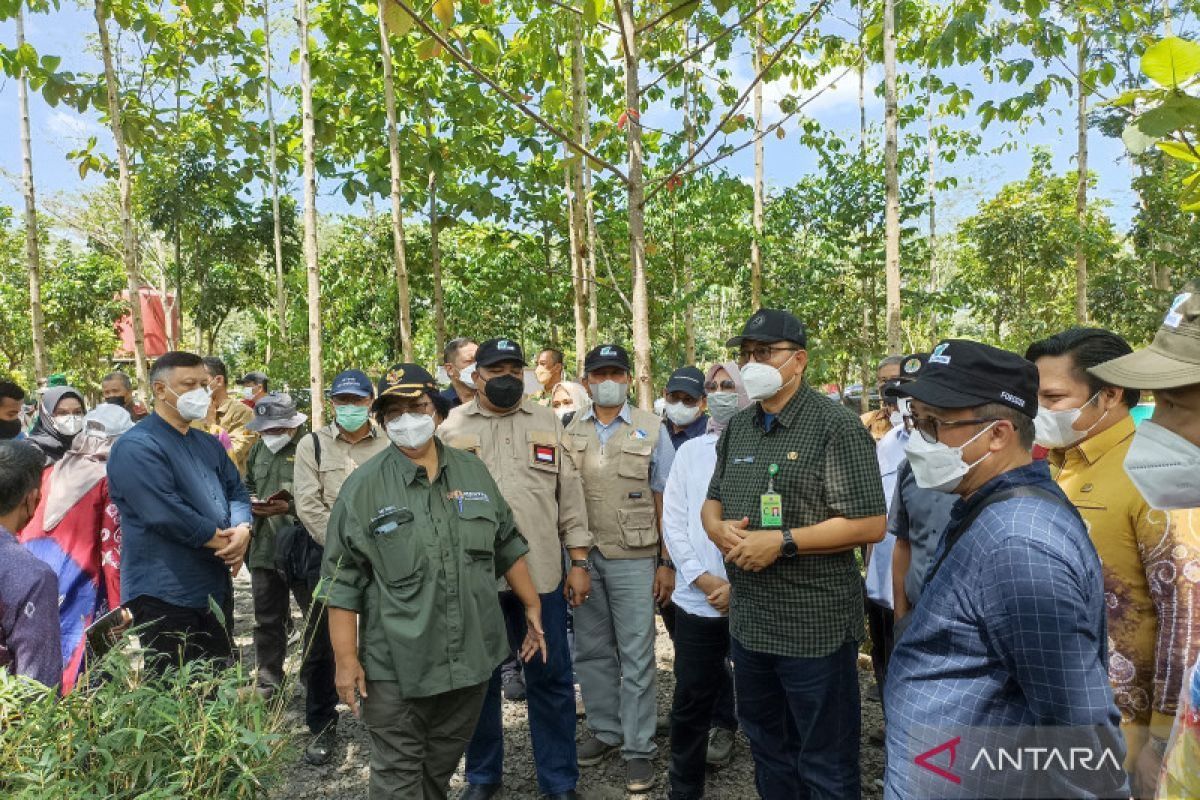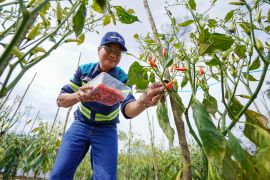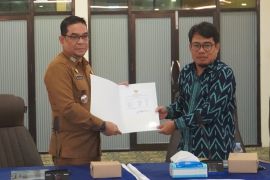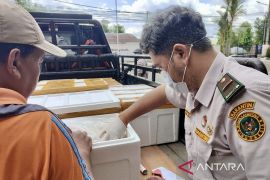Banjarbaru, S Kalimantan (ANTARA) - Minister of Environment and Forestry Siti Nurbaya Bakar said that the first time she visited South Kalimantan in 2015, the conditions were still arid and forest and land fires were still high.
However, on her fourth visit on Thursday, March 24, 2022, to the Indonesian Tropical Rain Forest Park in the South Kalimantan Governor's office area, it is much greener with large trees.
The Minister invited director generals, professors and experts from academic authorities in the forestry to see the success of South Kalimantan in managing its rainforest park, which will later serve as a pilot for the forest city at the new national capital (IKN) in East Kalimantan.
"How important we are in South Kalimantan, it is clear how important South Kalimantan is in developing tropical rain forests. We want to learn from good things," she said.
Director General of Forestry Planning and Environmental Management Ruandha Agung said that one of the activities that will be carried out in IKN is to build tropical forests. According to him, what will be built in East Kalimantan will at least copy paste with what has been built in South Kalimantan.
"Here we can see extraordinary success, this is an example of what the minister planted two years ago, the growth is extraordinary," he said.
Ruandha also said that in 2024 the President will start having an office at IKN, so that reforestation must be pursued as much as possible.
"Nearby IKN there is already a large nursery that will produce seeds for the need for a land area of 16 million hectares per year, for seed needs throughout Kalimantan," he said.
Based on data from the South Kalimantan Forestry Office, the Indonesian Tropical Rain Forest of South Kalimantan has an area of 90 hectares and 58 hectares has been planted, consisting of various types of endemic plants to Kalimantan.
Read also: Over 30,000 ha South Kalimantan's river basin areas rehabilitated
Read also: South Kalimantan more potential to supply rice for new national capital
Read also: ULM totally supports bekantan conservation










